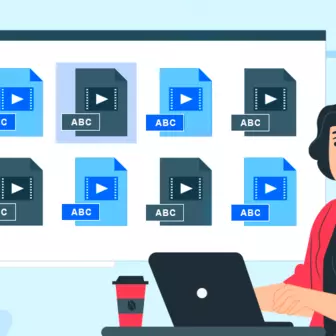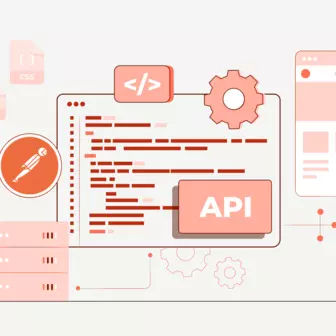Open source software has been receiving some serious criticism and some serious applauds from the tech community all across the world. People beg to differ on a lot of ideas about it, it has led to some serious publicity over these years. But hold on a second, with publicity comes myth and with myth comes some serious thoughts and people get mislead. Which at the end of the day hampers people’s thought process. Some think source software is totally free to use and some question its security quotient.
Open source technology has made it nearly possible to do so much in literally no time.
Let’s get into some myths about open source technology about back them with actual facts.
Myth #1: Open Source is free
Many people get more inclined towards open source software because they are misled into thinking that open source software is free to use and there will be hardly any software run costs in the future. On the correct note, this is not true, open source means open source code and that you can easily access the source code of any system if you are enrolled in any given community.
To break it into a more understandable concept:
An Open Source Content Management System vendor can charge you for the services being provided around the open source software, And by far there is no link between the software license and the what you have to pay to get out of it.
Take Drupal for example, it's free to download and use for personal purposes but the advancements have gone so far that you will need to seek expert services for utilising the software to it's very best potential.
What's the free part?
You are free to access the source code behind the functionality and alter it for your own use case but provided that you abide by the terms and conditions in the license agreement.
Myth #2 - All open source software is Linux based
This myth is one of the most common and it’s fair enough for people to believe, especially when they are new to the open source landscape or just starting off their careers. When OSS came into the picture, this was the most commonly When people mentioned OSS, the quick and common assumption about it is that OSS only runs on the Linux operating system. It is a quick and easy assumption to make as many open source programs are made with Linux availability as a prime motivator.
MYTH #3: Contribution to OpenSource is only for startups
In the government sector, open source contribution is strong and they have the deploy teams to be able to handle and make the best use out of the open source software. Hence they end up making more and more contributions in the process.
On the other hand, the developers in the public sector do contribute to the code base but they have to expect some benefit out of it, either in the financial aspects or on the career trajectory aspect. Some state and federal agencies like code.ca.gov and code.gov are using code sharing and collaboration to help the government in cutting down the duplicacy costs.
Drupal as an open source software is great for giving startups a heads up for showcasing their expertise and content. On the other hand, it is also one of the best solutions when it comes to enterprise requirements. You can custom build your content management systems which serve for a large scale content repository.
Myth 4 : OSS is less secure than proprietary software
So, is open source software inherently more secure? Of course not. Before going for any open source solution, you should look into its security thoroughly.
You can always review its version history and the frequency of security updates provided by the supporting community, you should also look for the amount of work being poured into its security segment and what is the word of mouth like?
Maybe you’ll even find an independent agency vouching for a product’s security, or certificates proving its reliability, or a respected colleague who can assure you that it's the best option on the market.
Additionally, you can see what tools your competitors, partners, and established companies in the industry are using. For instance, Ruby on Rails is used by 500px and Airbnb, and that alone is a great indicator that this framework is reliable enough for startups.
Drupal is considered one of the most secure content management systems across the world. Why? Because of its dedicated security team and the frequent security releases which make the system more and more robust over time.
Myth 5 - OSS is not scalable
Open source software is never designed to fit in everyone's shoe, the entire agenda of open source software is to make sure people can make it fit in their shoes with the help of respective expertise and their organisational requirements.
Take Drupal for example, It is designed to be scalable and adaptable in comparison to its commercial competitors. It is supposed to be evolved by the community and hence meet enterprise expectations. Developers have been able to adapt projects to small and enterprise size requirements.
Myth 6 - Open Source is not maintainable
It is a strong assumption that open source software is harder to maintain and it can lead to possible confusion among the user crowd. There is always a sense of responsibility and motivation to improve the code and better the software overall, not for monetary gain, not for any gain other than a feeling of social responsibility.
Open Source softwares generally track all the upgrades, improvements and maintenance measures using paid tools to help maintain a record of the versioning and who was the code contributed by. See? The community has already got the maintenance concern or issue covered before it even gets started.
One more strong foothold about open source is that it can be managed and the work can be overtaken by other technology service providers, in case your technical team decides to move on. So, you should now be sold on the idea that open source is maintained like a premier software.
Myth 7 - OSS doesn’t have a support system in place
Since there is no one to hold accountable openly, people think open source software is less cared about or not supported so well in the industry.
But things are the absolute opposite, the amount of care and support put in by the community support teams is enthralling and it can completely change your mindset about it. Companies which run on the software bring in their brightest minds to help provide support for their software so that they don't get shut down at the end of the day due to lack of sincerity in support and care.
Final word
There might be a ton of myths and rumors circulating within and outside the communities but one should always think and work this out before making any harsh assumptions. Myths often keep us from adopting or trying out a technology and this has to come to an end sooner or later because the technology and the community speak for themselves.
Subscribe
Related Blogs
Exploring Drupal's Single Directory Components: A Game-Changer for Developers

Web development thrives on efficiency and organisation, and Drupal, our favourite CMS, is here to amp that up with its latest…
Exploring Drupal's Single Directory Components: A Game-Changer for Developers

Web development thrives on efficiency and organisation, and Drupal, our favourite CMS, is here to amp that up with its latest…
7 Quick Steps to Create API Documentation Using Postman

If you work with API, you are likely already familiar with Postman, the beloved REST Client trusted by countless developers…




